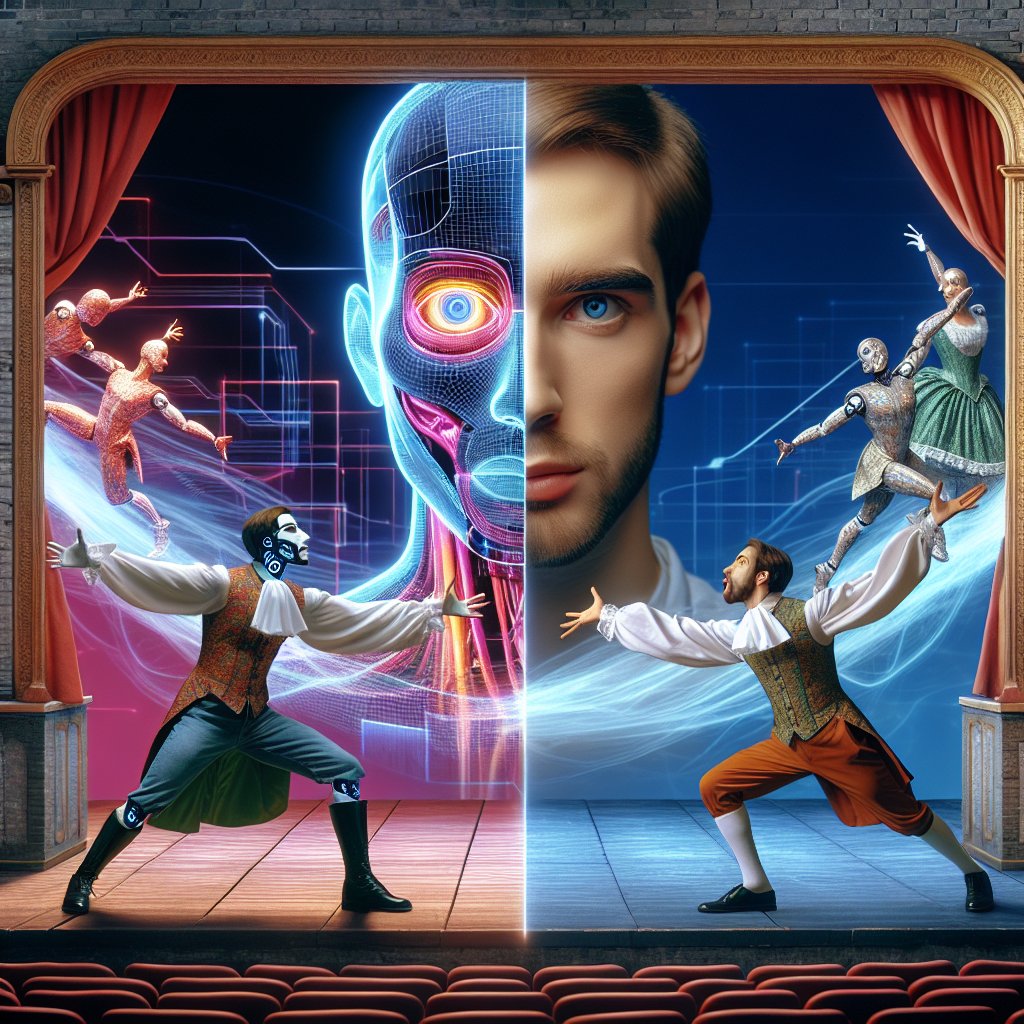Advancements in technology have opened new realms of possibilities, from digitally recreated performances to AI-driven characters that challenge the traditional role of human actors. As audiences and creators alike navigate this new frontier, the integration of AI in filmmaking and theatre promises to redefine the very essence of performance and storytelling, potentially altering the career trajectory for actors around the world. This intriguing shift invites a closer examination of how AI is being used in entertainment, its potential to take the place of actors, and the new opportunities it may unveil for the profession.
Use of AI for Actors
The entertainment industry is witnessing a transformative wave with the integration of artificial intelligence, and actors are at the forefront of this exciting evolution. AI technology in acting is revolutionizing the way performances are crafted, offering new tools for character development, emotion analysis, and even virtual casting. Actors are leveraging advanced algorithms to analyze scripts for better understanding of character nuances, using machine learning to study and adapt varied acting styles, and employing emotion recognition software to enhance their expressive range. This fusion of AI with traditional acting techniques is not only elevating performances but also expanding creative possibilities, enabling actors to push the boundaries of their craft.
The Potential for AI to Replace Actors
The entertainment industry is on the brink of a major transformation as artificial intelligence (AI) technologies advance at an unprecedented pace. From digital de-aging to creating lifelike CGI characters, AI is already making noteworthy contributions to the world of acting and film production. The notion of AI replacing actors might have seemed improbable a few years ago, but today, it’s a topic gaining serious attention. Innovative algorithms enable machines to mimic human emotions, learn from existing performances, and even generate entirely new ones, fueling debates on AI’s potential impact on the future of acting.
As AI continues to evolve, it’s conceivable that we may see fully computer-generated performances that rival those of human actors. This disruptive potential means that filmmakers might one day rely on intelligent systems to create complex characters without the need for physical casting. Such a shift would not only change the filmmaking process but also raise important questions about creativity and authenticity in the performing arts. AI’s encroachment into the realm of acting is not just a matter of technological feasibility; it’s a development that could reshape the narrative of what it means to be a performer in the digital age.
How Does AI Influence Acting Techniques and Training?
In the world of performance arts, Artificial Intelligence (AI) emerges as a groundbreaking force, transforming the landscape of acting techniques and training. At its core, AI assists in refining the skills of aspiring thespians through sophisticated software that analyzes emotions, gestures, and speech patterns. This technological advancement enables actors to receive immediate feedback on their performances, effectively tailoring their methods to achieve a desired emotional impact. For those involved in the dramatic arts, AI tools offer a unique and dynamic means to perfect their craft, from honing accents with precise speech recognition to embracing virtual reality environments that simulate a multitude of performance settings.
Can AI Enhance the Creativity of Live Performances?
The convergence of technology and art has always spurred innovation, but now, artificial intelligence (AI) is poised to revolutionize the world of live performances. Artists, musicians, and performers are leveraging AI to expand their creative boundaries, resulting in an unprecedented integration of human talent and machine intelligence. AI systems are aiding in everything from light show programming to dynamic music composition, offering a new dimension to the spontaneity and vibrancy of live shows. With AI’s ability to analyze and predict audience responses, the customization of performances for heightened emotional impact could enter uncharted territories, making each live event a unique, personalized experience.
As AI continues to evolve, its applications within the realm of live performances are only growing more intricate. By processing vast amounts of data from previous shows, AI can help artists understand which sequences resonate most, informing future performances to engage audiences more deeply. Not just a tool for analysis, AI has now become a collaborative partner, capable of generating visual effects, improvising music, or even choreographing dance in real-time alongside human counterparts. This synergy between human creativity and AI’s computational power is transforming live performances into a cutting-edge spectacle of artistic expression and technological marvel.
Ethical Implications of Using AI to Mimic Human Performances
Artificial intelligence (AI) has made significant strides in its ability to mimic human performances, sparking a fascinating debate on the ethical implications of such advancements. The emergence of sophisticated algorithms allows machines to replicate not just the analytical tasks traditionally reserved for humans, but also the creative aspects of performances in fields such as music, art, and acting. This technological evolution raises critical concerns regarding authenticity, intellectual property rights, and the essence of human creativity. As AI systems continue to learn from and imitate human expressions, the lines between AI-generated and human-made performances are becoming increasingly blurred, compelling us to reassess the value we place on original human talent and the legal frameworks that protect these works.
Understanding the ethical dimensions of AI’s role in replicating human performances is paramount as we navigate this new digital era. Issues of consent and credit come to the forefront as AI draws from existing human performances to create new content. There is also an underlying fear that the proliferation of AI in creative industries might lead to a decrease in opportunities for human artists, potentially devaluing their skills and contribution to culture. As AI continues to push the boundaries of what is possible, it becomes necessary to establish ethical guidelines that ensure responsible innovation while respecting the rights and dignities of the human artists who inspire these technological achievements.







